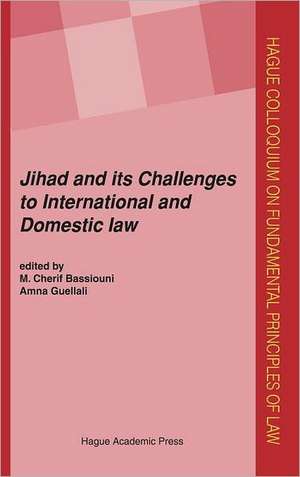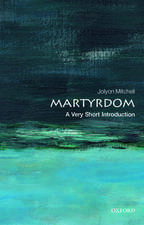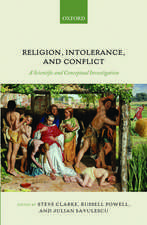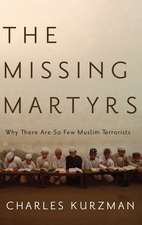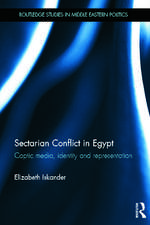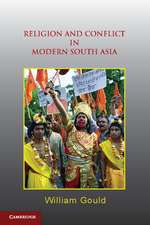Jihad: Challenges to International and Domestic Law: Hague Colloquium on Fundamental Principles of Law Series
Editat de M. Cherif Bassiouni, Amna Guellalien Limba Engleză Hardback – sep 2010
The aim of this book is thus to clarify the meanings of jihad and the manipulation of its sense since the rise of political Islam during the 1960s. Its authors address the intellectual underpinnings of the concept of jihad, and link it to the narratives and historical contexts in which jihad in its various meanings has been interpreted and applied. It draws a parallel between Islamic humanitarian tradition and international humanitarian law, challenging the distorted interpretation of peace and war in Islam. It aims also at exploring the impact that jihad has on international law and domestic law through state practice and in view of the mounting call that law should adapt to the new reality of transnational terrorism. The mixture of authors from Muslim as well as Western countries allows for a true dialogue between cultures and a diversity of views on the issue.
This book is obviously highly recommended reading for academics and practitioners dealing with Islamic, national and international law and all those intrigued by and interested in the subject.
Professor M. Cherif Bassiouni is Distinguished Research Professor of Law Emeritus, and President Emeritus, at the International Human Rights Law Institute, DePaul University College of Law, Chicago, Illinois. He has served the United Nations in various capacities, all in the field of humanitarian law, international criminal law and human rights law. Amna Guellali is a Senior Researcher at the department of international humanitarian and criminal law of the T.M.C. Asser Instituut, The Hague, The Netherlands.
Preț: 646.62 lei
Preț vechi: 760.73 lei
-15% Nou
Puncte Express: 970
Preț estimativ în valută:
123.74€ • 128.41$ • 103.43£
123.74€ • 128.41$ • 103.43£
Carte tipărită la comandă
Livrare economică 17-31 martie
Preluare comenzi: 021 569.72.76
Specificații
ISBN-13: 9789067043120
ISBN-10: 9067043125
Pagini: 300
Ilustrații: 300 p.
Greutate: 0.59 kg
Ediția:1st Edition.
Editura: Hague Academic Press, an imprint of T.M.C. Asser Press
Colecția Hague Academic Press
Seria Hague Colloquium on Fundamental Principles of Law Series
Locul publicării:The Hague, Germany
ISBN-10: 9067043125
Pagini: 300
Ilustrații: 300 p.
Greutate: 0.59 kg
Ediția:1st Edition.
Editura: Hague Academic Press, an imprint of T.M.C. Asser Press
Colecția Hague Academic Press
Seria Hague Colloquium on Fundamental Principles of Law Series
Locul publicării:The Hague, Germany
Public țintă
ResearchCuprins
Jihad, its meaning, scope and purpose in the Islamic tradition.- Evolving Approaches to Jihad: From Self-Defense to Revolutionary and Regime-Change Political Violence.- Jihad and the Interpretation of the Quran: Contextualising Islamic Tradition.- Understanding the Discourses on Jihad in Islam Through Classical and Modern Narratives.- The Pitfalls of Jihad As an Individual Duty (Fard ‘Ayn).- Resurrecting Siyar Through Fatwas? (Re)Constructing Islamic International Law in a Post (Iraq) Invasion World.- Jihad, jus ad bellum and jus in bello.- The Challenge of Fragmentation of International Humanitarian Law Regarding the Protection of Civilians: An Islamic Perspective.- Jus in Bello: Civilians’ Fundamental Rights Under Islamic and Public International Law.- Does the Impact of Jihad Ideology and Action Require a Transformation in the Legal Rules on Targeting?.- Self-Defense Arguments in the Jihad Concept and Their Counterparts in Western International Law.- Jihad and domestic law.- Jihad and Counter-Jihad: Western European Legal Responses to Islamic Militancy.- Why Continue Counterterrorism Policies if they are hurting?.
Textul de pe ultima copertă
Since the September 11 attacks on the World Trade Center, jihad has become symbolic of the confrontation between Muslims and the West. According to popular views, jihad represents a religiously sanctioned war to propagate or defend the faith by defensive and aggressive means. However, there is not one single meaning of jihad, but many different interpretations. In the most recent decades of Islamic history, jihad was invoked as an instrument for the legitimation of political action, be it armed resistance against foreign occupation, the struggle for self-determination, or retaliatory attacks against the West. The evolution and contemporary abuses of jihad cannot be understood without a connection to the modern political context in which such action takes place.
The aim of this book is thus to clarify the meanings of jihad and the manipulation of its sense since the rise of political Islam during the 1960s. Its authors address the intellectual underpinnings of the concept ofjihad, and link it to the narratives and historical contexts in which jihad in its various meanings has been interpreted and applied. It draws a parallel between Islamic humanitarian tradition and international humanitarian law, challenging the distorted interpretation of peace and war in Islam. It aims also at exploring the impact that jihad has on international law and domestic law through state practice and in view of the mounting call that law should adapt to the new reality of transnational terrorism. The mixture of authors from Muslim as well as Western countries allows for a true dialogue between cultures and a diversity of views on the issue.
This book is obviously highly recommended reading for academics and practitioners dealing with Islamic, national and international law and all those intrigued by and interested in the subject.
Professor M. Cherif Bassiouni is Distinguished Research Professor of Law Emeritus, and President Emeritus, atthe International Human Rights Law Institute, DePaul University College of Law, Chicago, Illinois. He has served the United Nations in various capacities, all in the field of humanitarian law, international criminal law and human rights law. Amna Guellali is a Senior Researcher at the department of international humanitarian and criminal law of the T.M.C. Asser Instituut, The Hague, The Netherlands.
This book is obviously highly recommended reading for academics and practitioners dealing with Islamic, national and international law and all those intrigued by and interested in the subject.
Professor M. Cherif Bassiouni is Distinguished Research Professor of Law Emeritus, and President Emeritus, atthe International Human Rights Law Institute, DePaul University College of Law, Chicago, Illinois. He has served the United Nations in various capacities, all in the field of humanitarian law, international criminal law and human rights law. Amna Guellali is a Senior Researcher at the department of international humanitarian and criminal law of the T.M.C. Asser Instituut, The Hague, The Netherlands.
